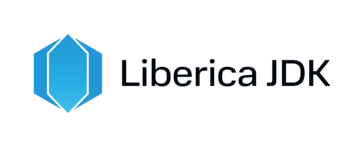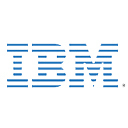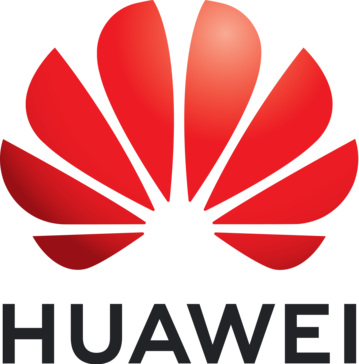Description

Liberica JDK

IBM Semeru Runtimes
Comprehensive Overview: Liberica JDK vs IBM Semeru Runtimes
Liberica JDK
a) Primary Functions and Target Markets: Liberica JDK is a distribution of the OpenJDK, developed by BellSoft. It is designed to be a comprehensive, scalable, and secure implementation of the Java platform. BellSoft targets a wide range of markets that require Java development, from desktop applications to large-scale enterprise systems and cloud deployments. This JDK is often sought after by businesses that need a reliable, open-source Java development kit with extended support options.
b) Market Share and User Base: Liberica JDK has a growing user base, particularly due to the increasing adoption of open-source technologies and its extensive compatibility with various platforms. While not as widely used as Oracle's offerings, it is gaining traction, especially among companies looking for cost-effective alternatives to Oracle Java with robust support.
c) Key Differentiating Factors:
- Fully open-source with no licensing fees, which appeals to businesses avoiding commercial licensing costs.
- Offers Long-Term Support (LTS) for older Java releases.
- Provides extended operating system and platform support, including Linux ARM and Alpine Linux.
IBM Semeru Runtimes
a) Primary Functions and Target Markets: IBM Semeru Runtimes is another distribution of OpenJDK that focuses on high performance, scalability, and optimized workloads. Targeted at enterprise environments, it includes innovations from the Eclipse OpenJ9 project, offering an efficient runtime for Java applications, especially in cloud or containerized environments.
b) Market Share and User Base: IBM Semeru has a niche market primarily consisting of enterprise-level corporations familiar with IBM's software ecosystem. It’s favored by firms looking to leverage IBM’s cloud offerings and those needing a runtime optimized for performance, especially in memory-constrained environments.
c) Key Differentiating Factors:
- Utilizes the Eclipse OpenJ9 JVM, which is designed for optimized performance and lower memory footprint.
- Strong integration with IBM’s cloud platform and other enterprise software products.
- Offers a competitive edge for companies already invested in IBM’s infrastructure.
Oracle Java Downloads
a) Primary Functions and Target Markets: Oracle Java Downloads provides the official distribution of the Java Development Kit (JDK) directly from Oracle. It targets a broad spectrum of users, from individual developers to large enterprises, needing a standard, well-supported Java platform with full Oracle backing.
b) Market Share and User Base: Oracle Java is the most widely used Java distribution worldwide, benefiting from being the default provider of the Java Development Kit and the Enterprise Edition. Its user base spans across many sectors that require enterprise-grade features and official support.
c) Key Differentiating Factors:
- Direct from the creators of Java, ensuring the most up-to-date version with early access to patches and fixes.
- Offers commercial features and full enterprise support, which are essential for businesses running mission-critical Java applications.
- Its licensing model (commercial for production use) and support packages make it appealing for enterprises that require comprehensive vendor support.
Comparison Summary
- Market Approach: Liberica JDK focuses on a cost-effective, open-source solution; IBM Semeru emphasizes high performance and efficiency; Oracle Java provides a premium, enterprise-grade solution with extensive support.
- User Preferences: Companies looking for free and open-source tend toward Liberica, enterprises integrated with IBM's ecosystem prefer Semeru, while those needing rigorous certification and support typically choose Oracle.
- Support and Licensing: Oracle offers extensive paid support and features, whereas Liberica provides LTS for free. IBM offers tailored solutions integrated with its broader product suite.
- Performance and Features: IBM's OpenJ9 enhances performance and is suitable for specific workloads, while Oracle's JDK benefits from being the standard reference implementation with comprehensive support.
Each distribution has its strengths, allowing users to choose based on specific needs such as cost, performance, support requirements, and compatibility with existing infrastructure.
Contact Info

Year founded :
Not Available
Not Available
Not Available
Not Available
Not Available

Year founded :
Not Available
Not Available
Not Available
Not Available
Not Available
Feature Similarity Breakdown: Liberica JDK, IBM Semeru Runtimes
When comparing Liberica JDK, IBM Semeru Runtimes, and Oracle Java Downloads, it's useful to explore their core features, user interfaces, and unique aspects. Here's a breakdown:
a) Core Features in Common
-
Java SE Compatibility: All three products provide a Java Development Kit (JDK) that is compliant with the Java SE (Standard Edition) specifications. This includes both the Java Runtime Environment (JRE) and development tools such as compilers and debuggers.
-
JVM Implementation: They all provide a Java Virtual Machine (JVM) that supports the running of Java applications. Each of them aims to deliver a robust, high-performance runtime environment.
-
Platform Support: Each JDK is available for major operating systems like Windows, macOS, and various distributions of Linux. This cross-platform compatibility is a staple feature of JDK distributions.
-
Regular Updates: They receive regular updates to ensure security, performance improvements, and compliance with the latest Java SE standards. This includes updates for bug fixes and enhancements.
-
Open Source Components: While the proprietary implementations may differ, they all utilize open source components either via the OpenJDK project or other open source resources to some extent.
b) User Interfaces Comparison
-
Installation and Configuration: The installation process is quite similar across all three, typically involving a straightforward download-and-install procedure with documentation to guide users. However, some differences exist in bundled tools and default configurations.
-
Management and Monitoring Tools: Each product provides tools for monitoring and managing Java applications. While the interface of these tools might differ slightly, their core functionalities—like process monitoring, performance tracking, and debugging—overlap significantly.
-
User Documentation and Community Support:
- Liberica JDK and IBM Semeru Runtimes: These products are supported by comprehensive online documentation and community forums, catering mainly to developers who are familiar with OpenJDK environments.
- Oracle Java Downloads: Provides extensive official documentation, along with premium support options for enterprise customers. It also maintains a large user community and detailed support resources.
c) Unique Features
-
Liberica JDK:
- Comprehensive Packaging: It often bundles additional libraries and components beyond the standard OpenJDK features, such as LibericaFX which includes JavaFX.
- Enhanced Support for Containers: Offers optimized builds for use with Docker and other containerized environments, making it friendly for cloud-native applications.
-
IBM Semeru Runtimes:
- Eclipse OpenJ9: Uses the Eclipse OpenJ9 JVM, which is designed to be small and fast, offering performance and memory-management advantages over traditional JVMs.
- Enterprise Integrations: Specifically optimized for IBM's enterprise environments, providing seamless integration with IBM's ecosystem of software products.
-
Oracle Java Downloads:
- Oracle's Proprietary Tools: Offers proprietary features and tools, such as the Oracle Mission Control and Oracle Flight Recorder, which provide advanced performance diagnostics and monitoring capabilities.
- Commercial Support and Licensing: Provides extensive commercial support and licensing options, appealing to enterprises that require SLA-backed support and advanced deployment options.
Each of these JDKs caters to slightly different audiences due to their unique offerings and company affiliations, but they all remain fundamentally aligned through their core support of Java's standard capabilities.
Features

Not Available

Not Available
Best Fit Use Cases: Liberica JDK, IBM Semeru Runtimes
When deciding between different Java Development Kits (JDKs) and runtimes, such as Liberica JDK, IBM Semeru Runtimes, and Oracle Java Downloads, it's crucial to understand their unique features and best fit use cases. Here's how they generally align with different project requirements and business needs:
a) Liberica JDK
Best Fit Use Cases:
- Small to Medium Enterprises (SMEs): Liberica JDK is often favored by smaller companies or startups due to its open-source nature and zero-cost option.
- Open Source Projects: Developers engaged in open source projects or those who need a JDK with broad open-source community support might prefer Liberica for its transparency and collaborative environment.
- Cross-Platform Developments: With support for a wide range of platforms, including Windows, macOS, Linux, and others, it's suitable for projects requiring diverse operating system compatibility.
- Performance and Cloud Deployments: Liberica JDK includes a variety of optimizations and is well-suited for modern, performance-sensitive applications, especially those intended for cloud environments.
b) IBM Semeru Runtimes
Preferred Use Cases:
- Enterprises Running on IBM Infrastructure: Companies that already invest heavily in IBM’s technology stack may prefer IBM Semeru due to integration benefits, support, and alignment with IBM's cloud services.
- High-Performance Computing (HPC): Semeru is optimized for performance, making it suitable for resource-intensive applications in industries like finance, healthcare, and scientific research.
- Mainframe and Legacy System Integrations: Organizations using IBM mainframes might find it advantageous to stick with IBM's own JDK for consistent support and compatibility.
- Large-scale Enterprise Deployments: Big enterprises looking for a well-supported, enterprise-grade JDK may find IBM’s offerings aligned with their rigorous requirements for stability and security.
c) Oracle Java Downloads
Consideration Scenarios:
- License Needs and Long-Term Support (LTS): Businesses that need access to the latest features, security updates, and long-term stability, especially those requiring Oracle's commercial support, might prefer Oracle JDK.
- Large Enterprises and Legacy Systems: Enterprises with legacy Java applications that have historically depended on Oracle may choose Oracle's JDK for continuity and consistency.
- Comprehensive Feature Sets: Organizations that need advanced features available only in Oracle's commercial versions may opt for Oracle JDK to leverage these capabilities.
- Security and Compliance Requirements: Companies with strict compliance and security mandates often lean towards Oracle due to its reputed security patches and comprehensive update policies.
d) Industry Verticals and Company Sizes
- Small to Medium Companies: They generally prefer open-source options like Liberica JDK for cost-effectiveness and flexibility. Startups focusing on innovation and rapid development cycles may appreciate its community-driven advancements.
- Large Enterprises: Often favor IBM Semeru or Oracle Java for their extensive support, SLAs, and stability. These enterprises might be in sectors like banking, telecommunications, or government, where reliability and enterprise-level service are paramount.
- Industry-Specific Requirements: Specific industries like healthcare, finance, or telecommunications may choose based on niche requirements—such as processing power (favoring IBM), cross-platform needs (favoring Liberica), or regulatory standards (favoring Oracle).
Overall, the choice between these JDKs often comes down to the specific requirements related to cost, support, performance, and integration with existing systems. Each option offers unique benefits aligned with different business sizes, project types, and industry demands.
Pricing

Pricing Not Available

Pricing Not Available
Metrics History
Metrics History
Comparing undefined across companies
Conclusion & Final Verdict: Liberica JDK vs IBM Semeru Runtimes
When evaluating Liberica JDK, IBM Semeru Runtimes, and Oracle Java Downloads, it's important to consider various factors such as cost, performance, licensing, community support, and use case applicability. Here's a comprehensive conclusion and final verdict:
Overall Value:
a) Best Overall Value:
The best overall value depends on specific user needs, such as the importance of cost, licensing flexibility, and support requirements:
-
Liberica JDK provides strong value for open-source enthusiasts and organizations seeking a cost-effective and flexible option with strong community support. Its no-cost licensing for production and redistribution can significantly benefit users looking for a hassle-free option.
-
IBM Semeru Runtimes excel in enterprise environments where reliability, integration with existing IBM infrastructure, and performance optimizations are critical. It offers good support for cloud-native applications and enterprise-grade optimizations, making it valuable for IBM-centric use cases.
-
Oracle Java Downloads might offer the best value for organizations heavily reliant on Oracle ecosystems or those needing specific Oracle capabilities and professional support. It’s often the choice for enterprises requiring official security patches and world-class support with strict regulatory compliance.
Pros and Cons:
b) Pros and Cons:
-
Liberica JDK:
-
Pros:
- Open-source and free for use without restrictions.
- Strong community support and frequent updates.
- Compatibility with various platforms and excellent documentation.
-
Cons:
- Might lack some proprietary features or support found in paid versions.
- May not have the same level of professional support and guarantees as paid options.
-
-
IBM Semeru Runtimes:
-
Pros:
- Optimized for IBM environments and cloud platforms.
- Strong performance enhancements and enterprise-level support.
- Good compatibility with Java EE and cloud-native applications.
-
Cons:
- Can be more expensive than open-source alternatives.
- Some features may be best utilized within an IBM ecosystem, which can be limiting for diverse environments.
-
-
Oracle Java Downloads:
-
Pros:
- Comprehensive support and regular, timely updates.
- Access to Oracle’s extensive ecosystem of tools and platforms.
- Assurance of compatibility and compliance with official Java standards.
-
Cons:
- Paid subscription model can be costly.
- Licensing can be complex, requiring careful management.
-
Recommendations:
c) Specific Recommendations:
-
For Open-Source Enthusiasts or Cost-Conscious Users:
Choose Liberica JDK for a robust, open-source Java runtime with no licensing costs. It’s an excellent choice for projects where budget constraints and flexibility are key considerations. -
For IBM-Centric Environments:
IBM Semeru Runtimes are ideal for enterprises heavily invested in IBM technologies, seeking to leverage its optimizations and support for cloud-native Java applications. -
For Organizations Using Oracle Ecosystems or Seeking Enterprise-Level Support:
Opt for Oracle Java Downloads if your organization requires comprehensive enterprise support, frequent security updates, and high compatibility with Oracle services. Despite the cost and complexity, it may provide the best assurance and support for mission-critical applications.
In conclusion, while there is no one-size-fits-all answer, making a decision based on the specific needs of your environment, budget, and existing infrastructure can guide you to the most suitable Java runtime option among Liberica JDK, IBM Semeru Runtimes, and Oracle Java Downloads.
Add to compare



